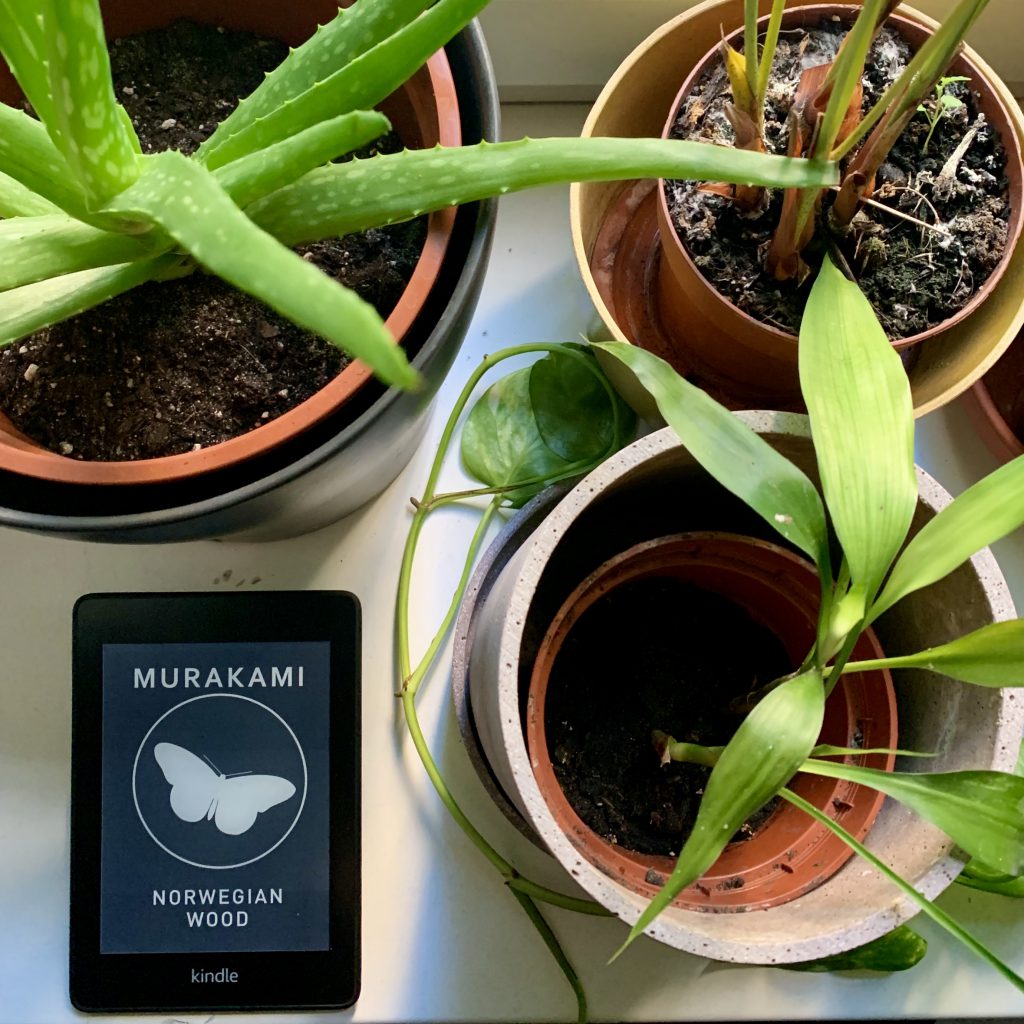Norwegian Wood tells the story of Toru, a university student who moves to Tokyo in 1969 after his best friend from high school commits suicide. The novel opens nearly two decades later, as 37-year-old Toru arrives in Hamburg, Germany. As the plane lands, an orchestral version of The Beatles’ “Norwegian Wood” plays, triggering memories that overwhelm him: “thinking of all I had lost in the course of my life: times gone forever, friends who had died or disappeared, feelings I would never know again.” Toru’s yearning for what he has lost is clearly expressed through the novel’s tone and amplified with its 1960s ethos. Yet, the essence of Norwegian Wood cannot fully be defined in terms of nostalgia. Rather, Murakami’s emotive language and characters are akin to a disposition made famous by Portuguese poets and lyricists—saudade.
Saudade is considered an untranslatable word with both melancholic and nostalgic characteristics. The German word sehnsucht may be the closest equivalent, which loosely means to long for something. Audrey F.G. Bell defines saudade in her 1912 book In Portugal as,
“The famous saudade of the Portuguese is a vague and constant desire for something that does not and probably cannot exist, for something other than the present…not an active discontent or poignant sadness but an indolent dreaming wistfulness.”
Nearly all Murakami’s characters appear to exhibit saudade, but Toru, as the first-person narrator, arguably portrays the ethos the most. Not only does he reflect on his lost friendship with Kizuki, but also fosters feelings for Naoko, which seem impossible to result in a healthy relationship. He spends much of his time alone, reminiscing on times spent with his deceased best friend and walks with Naoko before she was institutionalized. Each week, he goes through the motions of school, work and daily chores, but he reserves Sunday to further revel in saudade.
“How many Sundays – how many hundreds of Sundays like this – lay ahead of me? ‘Quiet, peaceful, and lonely,’ I said aloud to myself.”
The music references in Norwegian Wood further reinforce the novel’s saudade. The Portuguese music genre fado is famous largely in part for its expressions of saudade. With origins in the early 1800s, traditional fado is characterized by songs of struggle, particularly those of sailors and the working class. Many music scenes have adopted fadoesque characteristics. Fado has made its way as far as the FIFA 20 soundtrack with German indie band Milky Chance taking a crack at the genre.
Likewise, the music referenced in Murakami’s novel doesn’t technically belong to the fado scene. Yet, many of the songs contain traces of saudade. The novel’s title is a direct reference to The Beatle’s song of the same name. More than once, the characters’ play “Norwegian Wood” to pay homage to a fallen friend, and the song itself possesses tones of saudade. In one of the final scenes, Reiko visits Toru in Tokyo, and they spend the night drinking, playing guitar and reminiscing on the past and what may lie ahead. Chain-smoking, Reiko chooses the song “Desafinado,” meaning out of tune in Portuguese, to be the first of many songs for the evening. The now-famous song was originally performed by Brazilian artist João Gilberto and released on his album Chega de Saudade. Both Reiko and Toru use the time together to celebrate and mourn those friends and moments that can never be again. Reiko restricts the evening of revelry to 51 songs, each tune facilitating their conversation, reflection and ultimately, their saudade.
Since the novel’s publication in 1987, audiences and Murakami himself have been critical of its rise to fame. Toru’s friend Nagasawa would say the book is worth reading because it’s endured “the baptism of time.” Yet, the novelty of Norwegian Wood rests in its ability to evoke universal sentiments. Readers may label feelings intrinsic to the human condition in different ways, but we all feel nostalgia, saudade and sehnsucht and the nuances between these words. Like Portuguese writer Manuel de Melo’s description of saudade, Norwegian Wood is “a pleasure you suffer, an ailment you enjoy.”
More Murakami:
“With the Beatles” (2020)
“Confessions of a Shinagawa Monkey” (2020)
Stats
Title: Norwegian Wood
Author: Haruki Murakami
Translator: Jay Rubin
Publication Year: 1987
Pages: 401

